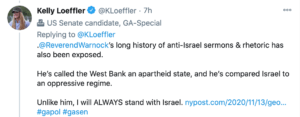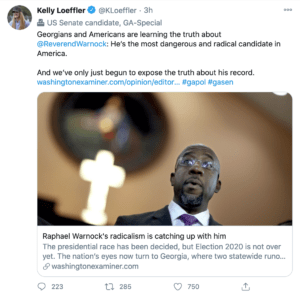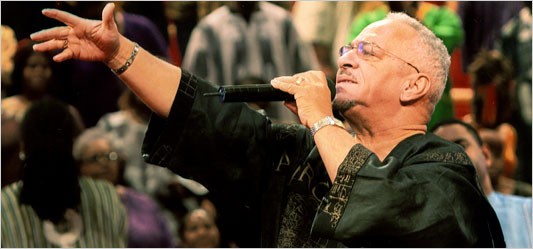The spectacle seemed to dominate every news station, barber shop, beauty shop and church fellowship hall across the nation. For months on end, an excerpt of a sermon offered in the sacred confines of the Black church had taken center stage in the unfolding drama surrounding the potential election of Barack Obama, who would become the first Black president of the United States of America.
The sermon was preached at Trinity United Church of Christ in Chicago by Jeremiah Wright — a scholar, luminary and sage — who had long enjoyed popularity within Black churches and liberal seminaries across the nation. For decades, Wright thundered prophetically from his pulpit in Chicago, challenging governmental policies, encouraging an appreciation of African heritage and merging the prophetic and priestly functions seamlessly in front of thousands of parishioners that at various times included personalities such as Barack and Michelle Obama, Oprah Winfrey and Common.

Corrie Shull
However, in 2008, just as Wright was settling into retirement, a routine sermonic riff from almost a decade earlier was being parsed and interpreted by the American public and news media pundits, many of whom were unfamiliar with Wright, Trinity United Church of Christ or the rich tradition of rhetorical devices and liberationist hermeneutics that have characterized Black preaching since Black sacred speech was first uttered on American shores.
This was a recipe for disaster. Wright’s words were taken out of context, right-wing media seized the opportunity to misrepresent his long and fruitful ministry, and ultimately, Barack Obama was forced to denounce the words and sentiments of his longtime pastor to preserve his chances of becoming president. It was a painful episode for all involved and for everyone who loves the Black church tradition.
And one would think that with the election of Obama that would have been the end of the infamous clip and the subsequent fallout. But, alas, here we are, 12 years after Obama’s first run for president, and Jeremiah Wright’s words are being used again to paint another Black political candidate as a radical anti-American leftist.
“Of all the critiques the opposition could have levied against Warnock … his opponent reached back to his support of Jeremiah Wright during the 2008 presidential campaign.”
Raphael Warnock serves as senior pastor of the Ebenezer Baptist Church in Atlanta with an earned Ph.D. from Union Theological Seminary and is currently the Democratic candidate surging ahead in a run-off election for U.S. Senate against Kelly Loeffler, the Republican candidate. The winner of this race could decide the balance of power in the United States Senate; therefore, millions of dollars and national attention is directed to Georgia for this run-off election. What is of extreme interest is that of all the critiques the opposition could have levied against Warnock culled from his numerous sermons given over two decades as a pastor or from his 2013 book The Divided Mind of the Black Church or his numerous published articles and essays, Warnock’s opponent reached back to his support of Jeremiah Wright during the 2008 presidential campaign debacle.

One of many Loeffler tweets repeating similar claims against Warnock.
In an attempt to frustrate Warnock’s campaign, Loeffler tweeted: “Reverend Warnock has a long history of anti-Israel extremism. He defended Jeremiah Wright’s anti-Semitic comments. He embraced the anti-Zionist BLM organization. And he thinks Israel is an ‘oppressive regime’ for fighting back against terrorism.”
What Loeffler identifies is the liberationist lens of the Black prophetic tradition that refuses to bow uncritically to American colonialism and oppression — a lens that has been used by Warnock, Wright and many others who have found the strength to stand against the destructive forces of the American empire.
Loeffler’s critique suggests there is no room in American politics for those who critique America from the perspective of the marginalized. Beyond that, the use of Warnock’s acknowledgment of understanding Wright’s socio-political analysis demonstrates a misunderstanding of the broad tapestry of Americans who authentically love this country and desire to see it rise to the heights of its loftiest ideals.
The intervening years between now and when Wright’s words first came to the nation’s attention reveal that Wright was indeed right in that “America’s chickens were coming home to roost.” The repeated murders of Black people at the hands of police, the continued struggle for Black economic parity, the exaggerated expressions of “American exceptionalism” that have given birth to the Tea Party and Trumpism since Wright’s sermon went viral — all point to the validity and truthfulness of the socio-political analysis he packed within his pulpit proclamation.
 The question is, why are Republicans still obsessed with using Wright as a boogeyman to scare fragile white Conservatives?
The question is, why are Republicans still obsessed with using Wright as a boogeyman to scare fragile white Conservatives?
I would posit that Wright is more than a lightning rod used to raise the ire of white conservatives who lack the intellectual depth and patriotism to sincerely critique the nation they claim to love. It is more than that.
Conservatives can’t get Jeremiah Wright’s words out of their heads because his words accomplished what the words of the prophet are meant to do. The prophet, in the strictest biblical meaning, aims to afflict the consciences of obstinate, morally stagnant and ethically apathetic groups of people. It is never the prophet’s task to be a custodian of the status quo; therefore, those who are committed to the status quo and benefit from it are generally incensed by the prophet’s pronouncements even though they find themselves ultimately unable to shake what has been heard. According to Walter Brueggemann, world-renowned biblical scholar, the task of prophetic ministry is “to nurture, nourish and evoke a consciousness and perception alternative to the consciousness and perception of the dominant culture around us.”
Wright’s words spoke to the American reality in such a stark manner that even those who unilaterally rejected his analysis cannot “unhear” it, and that is why it continues to reemerge in the American political drama.
Conservatives have yet to truly interrogate Wright’s statement in a way that would enable them to move beyond ethnic identity politics into a deeper understanding of what it means to embrace the complexity of the American experiment. Until conservatives authentically and sincerely explore the perspectives of those who have been marginalized and brutalized by the American empire, they will never be able to get Jeremiah Wright out of their heads.
Corrie Shull serves as pastor of Burnett Avenue Baptist Church in Louisville, Ky. He is an author, professor, school board member and father. He holds degrees from Fisk University, Louisville Presbyterian Theological Seminary and Colgate Rochester Crozer Divinity School.
Related articles:

